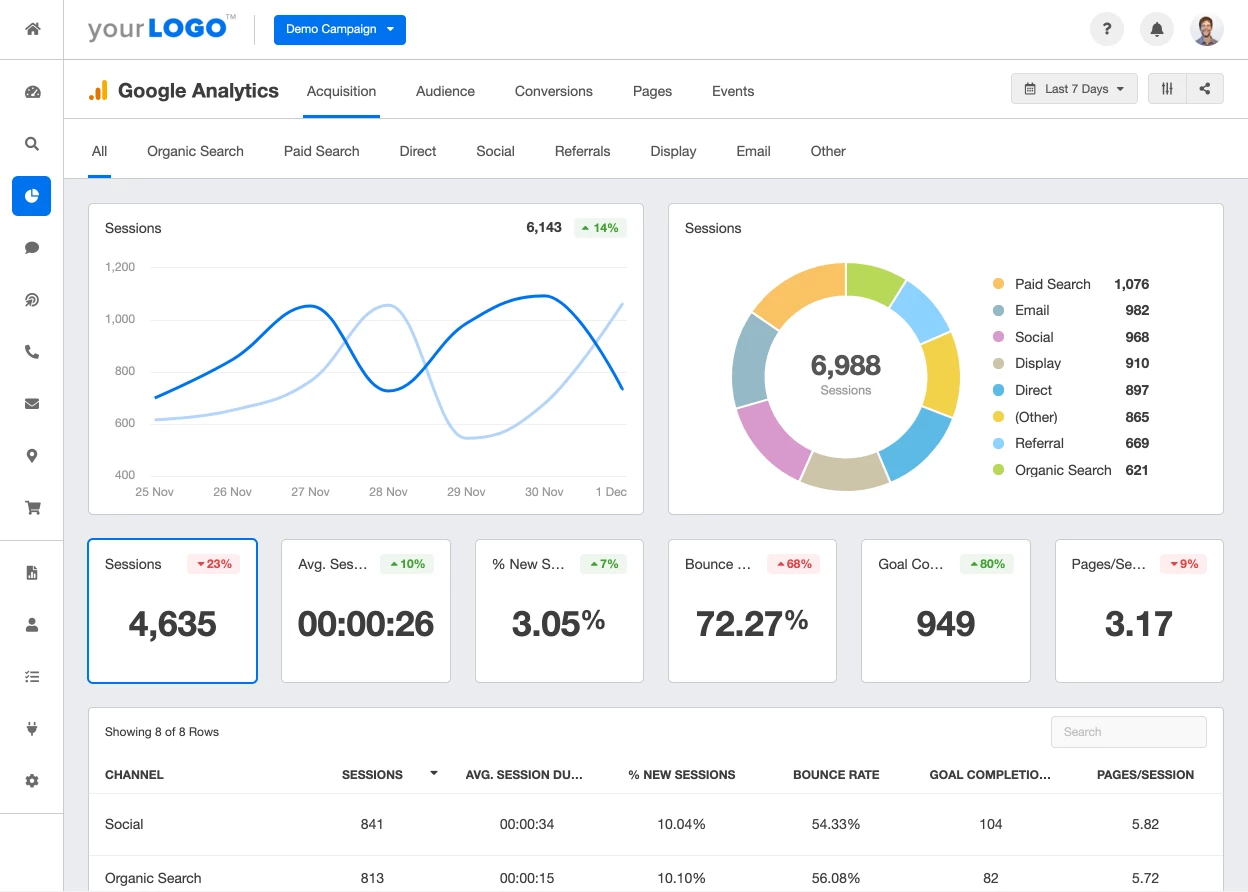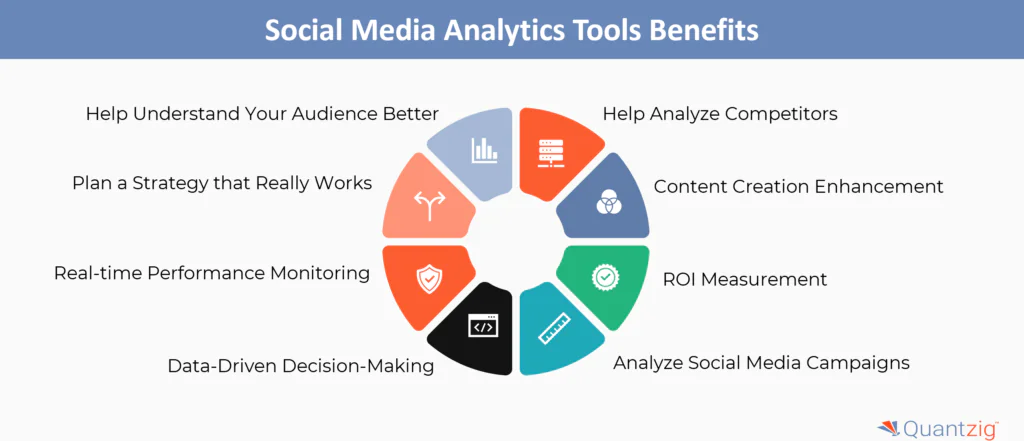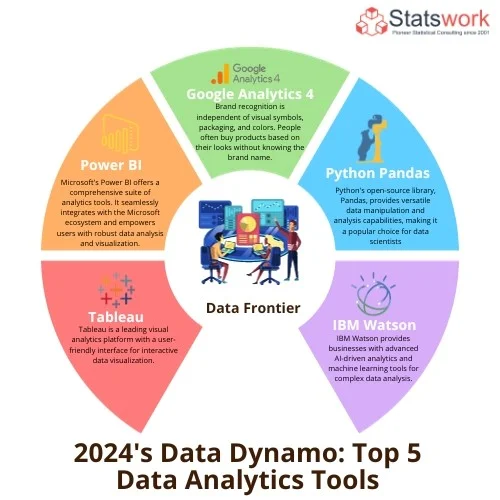Enhance Your Workflow with Intelligent Analytics Equipments
Optimize Growth: How Analytics Drive Better Techniques
In today's data-driven landscape, companies significantly acknowledge the essential function of analytics in forming efficient development approaches. By harnessing information insights, organizations can fine-tune their functional strategies, prepare for market adjustments, and boost client engagement. Nonetheless, the difficulty exists not only in accumulating information but in successfully interpreting it to drive substantial results. As we discover the key advantages and approaches connected with analytics, a vital question emerges: how can companies ensure they are leveraging these understandings to open their full possibility? The solution might redefine the future of strategic preparation.
Recognizing Information Analytics
Information analytics is a methodical computational analysis of information that enables companies to uncover meaningful patterns and insights. This process includes a range of methods, consisting of statistical evaluation, anticipating modeling, and data mining, which jointly intend to transform raw information into actionable details - Analytics. By utilizing these approaches, organizations can make enlightened choices that are rooted in empirical proof as opposed to instinct alone
The foundation of information analytics exists in its ability to deal with vast quantities of details from varied resources. This consists of structured information, such as data sources, and unstructured data, consisting of social media sites interactions and customer comments. With using specialized software application and tools, analysts can draw out and process this information successfully, identifying trends and correlations that may not be promptly apparent.
Understanding information analytics also entails acknowledging the significance of information quality and integrity. Exact and dependable information is essential for meaningful analysis; hence, companies should implement robust data governance methods. In addition, the repetitive nature of analytics permits continuous refinement and enhancement of techniques, making sure that companies remain active when faced with altering market dynamics and customer habits.
Trick Advantages of Analytics

One of the key advantages of analytics is its ability to offer actionable understandings. Organizations can swiftly assess large amounts of information, revealing patterns that may not be promptly apparent.
An additional substantial benefit is boosted consumer understanding. Analytics tools make it possible for companies to section their audience, track consumer behavior, and individualize advertising efforts. This targeted approach not just enhances client interaction yet additionally drives greater conversion prices.

Implementing Analytics Strategies
To completely realize the benefits of analytics, companies should take on organized approaches for application. This starts with clearly defining goals that straighten with more comprehensive company goals. By developing certain, quantifiable results, companies can focus their analytics initiatives on areas that generate the greatest return on financial investment.
Next, companies must focus on data administration to ensure the honesty and find out security of the information being examined. This involves setting up protocols for data collection, storage space, and access while sticking to pertinent regulations. Ensuring high-grade information is critical for producing purposeful understandings.
Moreover, fostering a society of data-driven decision-making is vital. This needs training employees to analyze analytics searchings for and encouraging cooperation across departments. When teams recognize the worth of analytics, they are more probable to integrate insights right into their daily operations.
Lastly, organizations should regularly review and fine-tune their analytics methods. The landscape of information and technology is continuously advancing, and staying adaptable will permit organizations to utilize brand-new tools and methods successfully. By applying these structured approaches, organizations can optimize the impact of their analytics initiatives and drive lasting development.
Devices for Efficient Evaluation
Efficient evaluation counts on a range of devices that promote the extraction of insights from data - Analytics. These devices can range from simple spreadsheet applications Check Out Your URL to innovative device discovering platforms, each serving an unique function in the logical process
Information visualization software application, such as Tableau and Power BI, plays a vital role in transforming complex datasets right into easy to understand visual depictions. These devices enable experts to recognize patterns and fads rapidly, enabling more informed decision-making.
Analytical analysis software, like R and SAS, provides advanced abilities for carrying out extensive analyses, including regression, theory screening, and anticipating modeling - Analytics. These attributes encourage organizations to draw purposeful verdicts from their data, identifying potential chances and risks
Additionally, database administration systems such as SQL and NoSQL databases give the required facilities for storing and inquiring big volumes of data effectively. They make sure that data is arranged and easily accessible for analysis.
Last but not least, service knowledge platforms incorporate various information resources, giving a thorough view of organizational efficiency. By using these tools effectively, organizations can enhance their logical capacities, enabling them to create approaches that take full advantage of growth and enhance visit general performance.
Instance Research Studies of Success
Successful organizations typically utilize data analytics to drive impactful methods, as evidenced by a number of notable instance studies. One noticeable instance is Netflix, which utilizes sophisticated algorithms to analyze viewer choices and behavior. By utilizing these understandings, Netflix has actually successfully tailored its material recommendations, causing boosted individual engagement and customer retention. Their data-driven strategy has actually definitely added to their condition as a leading streaming service.

Furthermore, Starbucks uses data analytics to determine optimal store areas and refine its item offerings. By checking out consumer demographics and buying patterns, Starbucks effectively identifies high-potential markets and customizes its menu to regional tastes, driving sales and client commitment.
These instance research studies illustrate that effective usage of information analytics can bring about strategic benefits, fostering technology and growth within organizations throughout various industries.
Final Thought
In verdict, the assimilation of analytics into business strategies significantly improves decision-making processes and fosters sustainable growth. The reliable execution of analytics devices even more supports agility and innovation, making it possible for organizations to navigate affordable landscapes with greater precision.
Data analytics is a systematic computational analysis of data that allows organizations to reveal purposeful patterns and insights.Understanding data analytics likewise involves recognizing the importance of data top quality and honesty. Reliable and accurate data is critical for purposeful evaluation; hence, organizations have to carry out robust data governance techniques.Following, organizations must prioritize information administration to ensure the honesty and safety and security of the data being evaluated.Effective organizations frequently leverage information analytics to drive impactful strategies, as shown by a number of noteworthy case researches.